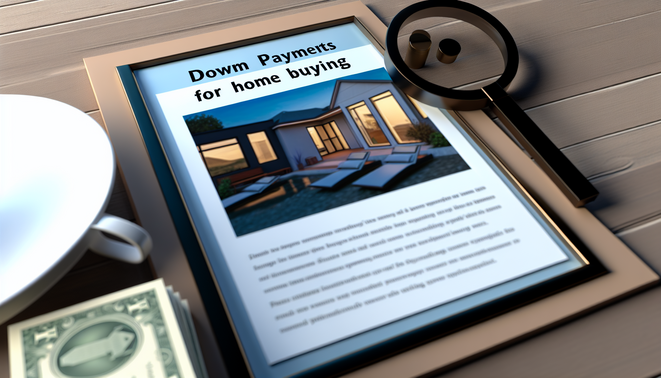Unlocking Property Value: Your Guide To The Ultimate Calculator
Introduction to Market Value of Property
So, let’s get real. Knowing the market property value? Super important. Buyers, sellers, investors, everyone’s in this game. Market value is basically what a property’s gonna go for out there in the wild, considering stuff like where it is, its condition, and what’s popping in the market right now.
You might wanna check out an accurate property value calculator. These tools are handy, pulling in different methods to come up with that magic number. Whether it’s sales comparisons, income potential, or what it would cost to build, that number can steer your pricing decisions and investments.
Here’s a quick look at how property valuation works:
| Valuation Method | Description | Best For |
|---|---|---|
| Sales Comparison | Looks at similar properties that sold recently. | Residential buyers and sellers. |
| Income Approach | Focuses on how much income a property can generate. | Investors buying rental properties. |
| Cost Approach | Assesses replacement cost minus depreciation. | New builds and unique properties. |
Getting your market value right? It can seriously help with negotiations and financial planning. It’s all about fairness, protecting buyers from overpaying and sellers from shortchanging themselves.
For deeper dives into valuation, you might wanna check out more on commercial real estate valuation methods and a broader view of real estate valuation methods.
Also, don’t miss our pieces on assessing resale value of flats and property valuation methods for investors.
The Sales Comparison Approach
The sales comparison approach? A classic. It’s all about finding your target property and comparing it to similar properties that recently sold. Using a property value calculator makes this way easier, giving you insights based on recent sales, location, and how the property stacks up.
Here’s how to do it:
1. Gather Comparable Data: Find properties near yours. Similar size, style, age—properties with a comparable number of bedrooms and bathrooms.
2. Analyze Recent Sales: Look at properties sold in the last six months to a year. Tracking these trends can tell you what’s happening in your market.
3. Adjust for Differences: Fine-tune your estimates. If another property has an extra bathroom, you might lower your property’s value accordingly.
4. Input Data into a Property Value Calculator: Use a calculator online to get a clearer estimate. Tools like Redfin and Estimator Calc make it all pretty straightforward.
Sample Comparative Data
| Property Address | Sale Price | Size (sq ft) | Bedrooms | Bathrooms |
|---|---|---|---|---|
| 123 Main St | $350,000 | 2,000 | 3 | 2 |
| 456 Oak St | $375,000 | 2,100 | 3 | 2 |
| 789 Pine St | $325,000 | 1,950 | 3 | 1.5 |
| Target Property | TBD | 2,000 | 3 | 2 |
With this data, you can figure out the average price per square foot, it’ll help gauge your property’s market value.
Using a property value calculator? Makes estimating a breeze. It not only improves your accuracy but also saves you time. So, get in on it! If you’re curious about more home value methodologies, check out Bankrate and Pennymac for in-depth insights.
Looking for more guidance? Don’t miss our tips on how to save tax on rental income or why location matters when hunting for a home.
The Cost Approach
The cost approach is pretty straightforward too. It’s all about figuring out the value of the land plus how much it costs to build a property. The basic idea? No buyer wants to pay more than it would cost to create a similar property from scratch.
Key Factors affecting the Cost Approach
1. Land Value: Assessing how much the land is worth is super crucial. This can change based on zoning, location, and what’s trending in the market.
2. Construction Costs: Take a good look at materials, labor, and other building costs. Price variations can be pretty significant regionally.
3. Depreciation: Over time, wear and tear can lower a property’s value. Functional issues or other factors might hit the property hard.
4. Market Conditions: Larger economic shifts can impact construction costs. Think supply chain issues or rising material prices.
Application of the Cost Approach
You’ll want to use this approach when:
– You’re looking at new builds or properties with major renovations.
– Unique properties lack enough comparable sales data.
– You’re dealing with non-income properties, like schools or churches.
Example of Cost Approach Valuation
| Component | Value |
|---|---|
| Land Value | $100,000 |
| Construction Cost | $250,000 |
| Total Cost | $350,000 |
| Less Depreciation (-10%) | – $35,000 |
| Market Value | $315,000 |
This approach works wonders for figuring the property’s value since it combines hard data with local insight. To tune up your valuation, check out a property value calculator from Redfin.
Plus, tools like QuickCapRate and Estimator Calc can help you refine your estimates using various data outcomes and methods.
Curious about land value and depreciation? Dive into our articles on Assessing Resale Value of Flats and Determining Rent for a Residential Property.
The Income Approach
Now onto the income approach. It’s super important, especially if you’re working with investment properties. This approach zeros in on potential income—allowing investors to assess how much a property can actually make. Key concepts? Rental yields and capitalization rates.
Rental Yield and Capitalization Rate
Rental yield is a simple calculation: take your annual rental income and divide it by what you paid for the property. This gives you a percentage showing your potential return. Check it out:
Table: Example Calculation of Rental Yield
| Property Value | Annual Rent | Rental Yield |
|---|---|---|
| $200,000 | $20,000 | 10% |
| $300,000 | $30,000 | 10% |
| $400,000 | $35,000 | 8.75% |
Cap rate? It’s another useful measure that helps analyze a property’s value. Defined as the ratio of net operating income to the purchase price or market value, it’s calculated like this:
Make sure to consider operating costs when figuring out that net operating income!
For more on property valuation methods, explore our resources on techniques for understanding property value. Check out articles like Breaking Down The Major Commercial Real Estate Valuation Methods and Real Estate Valuation Methods: From Basics to Advanced Techniques for a wealth of information.
Curious about property values? Dive into our related articles on home loans or building trust with builders.
Knowing these terms and formulas can really up your game in understanding property market value, leading to smarter investment choices!
Choosing the Right Approach for Your Needs
When it comes to figuring out property value, picking the right method is key—whether you’re buying, selling, or investing. A property value calculator? Great tool to gather data for those informed decisions. Here’s what to keep in mind.
1. Get the Market Value: This is what buyers are willing to pay; it can vary a lot. Use local trends to set the right expectations.
2. Choose a Solid Property Value Calculator: Pick ones that pull in good data sources. Tools like Redfin’s home value estimator and Pennymac’s estimator are reliable.
3. Input Accurate Data: Make sure you’re including the right info about your property—location, size, age, and other features. The calculator’s gonna spit out results based on what you enter.
4. Check with Pros: While calculators give good ballpark figures, hiring a professional appraiser for more detailed analysis is smart—especially before big transactions.
5. Keep an Eye on Market Changes: Real estate can shift fast. Use your calculator regularly to stay updated on your property’s value, thinking about investment moves.
6. Consider Extra Costs: When calculating your net value, account for things like taxes and repairs. Tools like Zillow’s Home Sale Calculator are helpful for these estimates.
Here’s a snapshot of common methods to calculate property value:
| Method | Description | Best For |
|---|---|---|
| Property Value Calculator | Quick estimates based on data inputs | Quick valuation |
| Professional Appraisal | Detailed analysis by a certified appraiser | Selling or refinancing |
| Comparative Market Analysis | Evaluates similar properties for market value estimation | Selling or purchasing |
In short, choose what fits your needs best. And don’t forget to check out our articles on home loans or flat inspection guides available on our site!
FAQ
1. What is market value in real estate?
Market value in real estate refers to the price a property would sell for in a competitive market, considering factors such as location, condition, and current market trends.
2. How is the sales comparison approach calculated?
The sales comparison approach is calculated by comparing the target property to similar properties that have recently sold, adjusting for differences in property features.
3. When should I use the cost approach?
Use the cost approach when evaluating new constructions, unique properties with insufficient comparable sales, or when assessing non-income producing properties.
4. What are rental yields and why are they important?
Rental yields are a measure of the return on investment for rental properties, indicating how much income a property generates relative to its value.
5. How can property value calculators assist in real estate?
Property value calculators can provide quick estimations by analysing various metrics and recent market data, helping buyers and sellers make informed decisions.













